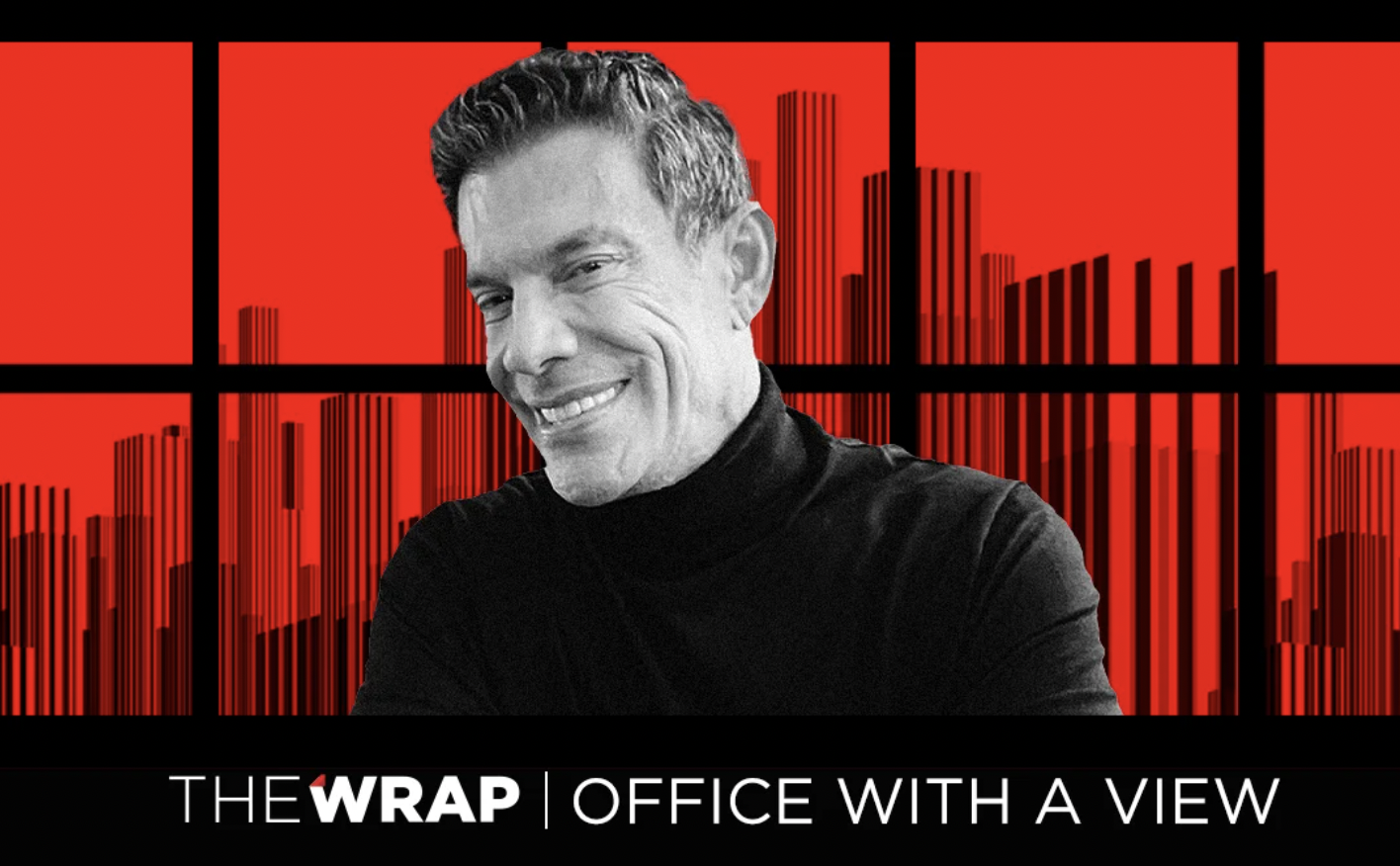By: Brian Welk
Stratagem Studios may have 250,000 square feet of studio space in Toronto, with another 100,000-plus on the way, but CEO Michael Cerenzie didn’t just plan on growing the space in Toronto as fast as he could. He first wanted to make sure that there was actually enough labor and talent who could work those stages.
As a result of Netflix, Disney and other emerging streamers fighting for sound stage space over the last few years, many in his industry were racing to buy land, lobby for local tax credits and rapidly assemble stages and equipment, Cerenzie said. But there’s one thing they left out.
“The problem is no one looked at the labor. And when you’re looking at labor, you’re like four to seven years out,” Cerenzie told TheWrap for this week’s Office With a View. “You could put up a stage tomorrow and put a tax credit in place, but to mature your labor, that’s the securitization that underpins all the rest of the strategy and growth.”
Cerenzie believes any producer will want to know the depth and value of available crew and talent in a region, and it’s the “responsibility” of studio providers to help grow a sector’s stages in line with the available labor skills, training and programming.
To that end, Stratagem has partnered with the Toronto District school board and with 22 colleges in the region to place roughly 7,000 students with union and IATSE programs to learn and gain opportunities in all facets of below-the-line work, with an eye toward building Toronto’s labor force of film professionals. His hope is that beyond the available technology and equipment that differentiates Stratagem in the market, keeping an eye on talent will help the company grow even beyond what they have in Toronto.
“It’s a global epidemic. If you look at London with all the production and all the studio stages being bought and built in London, I mean, if they build half of them, I don’t know where they get their labor. It’s pretty crazy. In Canada, it’s no different,” he said. “We wouldn’t be able to do that without getting our arms around the education training and skills training component of labor, because I would be concerned that with everything everybody else is building, I’m capped out.’”
Stratagem made their mark when the Jeremy Renner series “Mayor of Kingstown” began shooting in Toronto, with the company racing to open a handful of their facilities before construction on other spaces was fully completed. When COVID travel restrictions prevented Renner from flying to Atlanta to film “Hawkeye,” Stratagem was able to accommodate filming parts of the Marvel and Disney+ series in Toronto instead. They’ve now parlayed that to working with Marvel again on the Samuel L. Jackson series “Secret Invasion,” going as far as duplicating some of the sets Marvel had already set up on the show in Atlanta and London.
Read on as Cerenzie discusses what he’s learned since launching Stratagem, how he landed Taylor Sheridan and what challenges he sees as the company grows.
This conversation has been edited for length and style.
How did you come to form Stratagem Studios and decide to return to Toronto?
I hadn’t been here in 25 years other than I had three or four films that opened at TIFF over my career. So I came up almost as like a tourist in my own country. But the lens that I had when I looked deeply into the marketplace here, I felt that a few things were very interesting. I felt that the market hadn’t matured in infrastructure, and I also thought there was some great opportunity to be focusing on skills training, labor and education.
Back about three years or so, when we were starting construction of our first site here, [it] was literally at the commencement of COVID. The banks weren’t interested in funding us; we didn’t have a track record of building infrastructure in Canada. I didn’t have a track record. And most men or women that would have had my career at that point, you wouldn’t have seen them returning back to Toronto or Vancouver to do work.
We then had to find a more, let’s say creative, fluid way to get the studio built, invested in and put up during COVID. To open that during COVID was a gamble for the company, but it’s what really paid off in our creation of what is our first inaugural year.
What did landing “Mayor of Kingstown” teach you about developing relationships?
When Hollywood calls inquiring about space, it’s kind of like playing catch. I’m waiting for you to come to me. The way we look at it is that we curate and bring the content into the marketplace. I didn’t want to be in conflict with Cinespace or Pinewood or one of these other studios and saying, “We can shoot with one of these three places. Who should we shoot with?”
It was always the strategy of the company to use my original relationships in Hollywood in my 25 years. [My team] spends a lot of time on the phone every day, for weeks on end, developing relationships with not just the creative execs but the heads of physical as well as the agencies and finding out, who’s moving a show, where’s that show being developed, and is Toronto approved as one of the five districts in the marketplace? There’s a lot of analytics and data that go into who we want in our space.
It comes from being a creative producer and understanding studio executives. As you know, everyone thinks a show is not going to happen, and then it gets greenlit, and as soon as it gets greenlit, then there’s a frenzy. So what we try to do is get in front of that. We want to know that we’re competitive in that, and we want to know that our pricing index is right in the marketplace.
On “Mayor of Kingstown,” we knew we had to get Taylor Sheridan to approve shooting in Canada and not where he wanted to in the Midwest. The way we did that is we created a digital lookbook and asked them to give us their first shooting script for the opening episode. And then the creative team literally broke down that script from a location standpoint. They went through the whole color palette of how he shoots his film. They literally built the lens around the way they thought Taylor would look at that diner or that prison or that apartment and then put the whole package together.
So I think there’s an alchemy that takes place between Stratagem Studios, our Stratagem RX division that does the production service and the brand marketing division, because the brand division has to be a sales tool in educating people who have not yet shot with us.
What are your biggest challenges, either specific to your company or working in Toronto?
Our biggest question now is, what do we want to become? Originally, the answer to that question would’ve been we want to be the leader in the Canadian domestic market of studio and stages, support and facility, education, labor and so forth. We still are doing that, and we’re looking at expanding across Canada, in Vancouver and Manitoba to start.
But because of the type of the content that we’ve brought here, we’re now looking at, is this more of a global play? We’re looking at Los Angeles. We have potential land in the United Kingdom and London. Is it more of a global brand? The idea was always to create a great Canadian company that can compete globally. But now the big challenge is that we want to grow globally.
# # #All trademarks are the property of their respective owners.
Article Link: https://www.thewrap.com/stratagem-studios-ceo-michael-cerenzie-interview/

